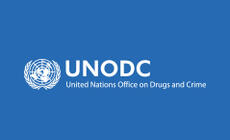Institution Background
The mission of UNODC is to contribute to global peace and security, human rights and development by making the world safer from drugs, crime, corruption and terrorism, through working for and with Member States to promote justice and the rule of law and build resilient societies.
UNODC provides research along with normative and technical support to Member States. UNODC’s approaches are comprehensive and innovative, paying particular attention to gender equality, non-discrimination, respect for human rights and the empowerment of women and youth.
The mandate of UNODC encompasses thematic areas related to preventing and countering transnational organized crime, corruption, terrorism, and the world drug problem as well as enhancing and strengthening criminal justice systems.
Evaluation Function
IES conducts independent utilization-focused evaluations in UNODC's mandated areas of work and provides evaluation results, lessons learned as well as evaluation-based knowledge for decision-making to the UNODC Executive Director, Senior Management and Member States.
IES implements its work across three inter-linked pillars of work relating to: 1) evaluation capacity development and government-led evaluation; 2) independent evaluations (also at a system-wide level); and, 3) evaluation knowledge products and systems. Further, IES maintains and uses its innovative web-based evaluation and knowledge management application Unite Evaluations.

